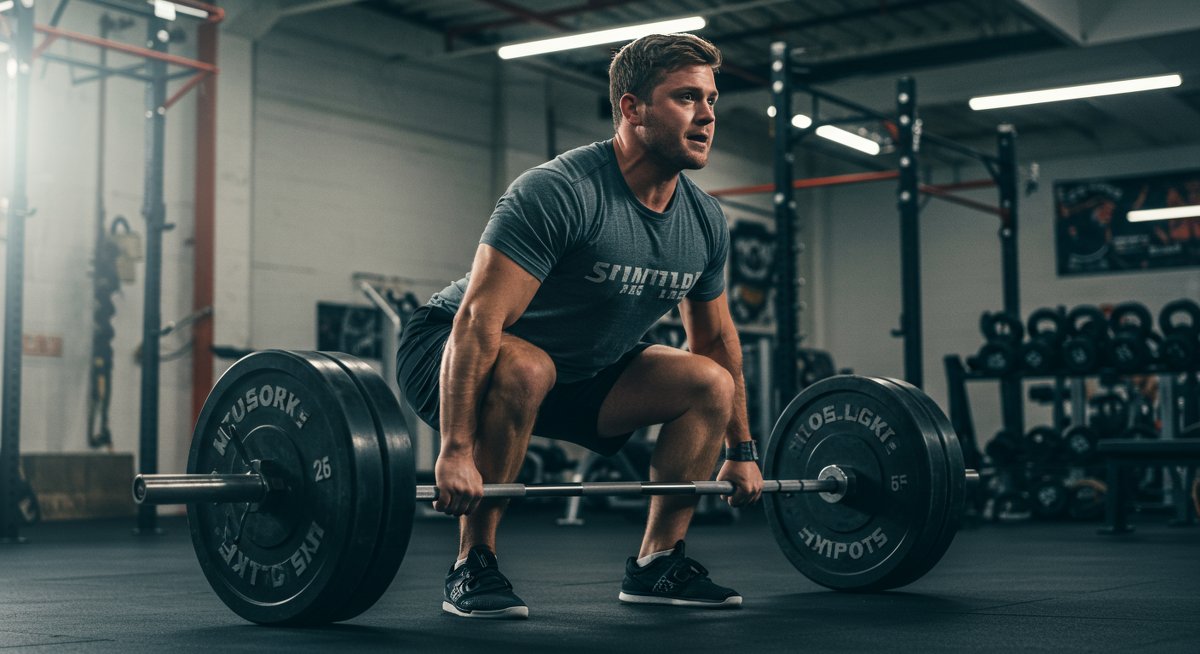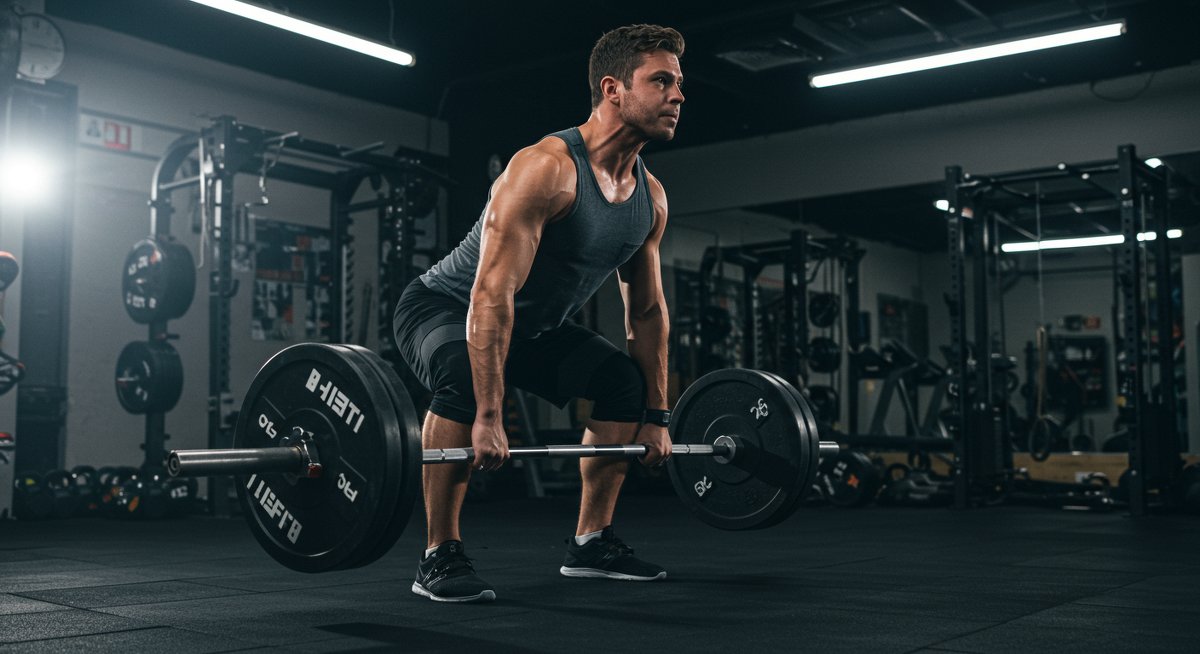That Reddit Post That Got Me Thinking
I came across a post in r/xxfitness that really resonated with me. A user was expressing their surprise – and a little disappointment – that after a year of lifting and a few years of playing sports, they didn't look as fit as they felt. They noticed people at the gym who were incredibly strong but didn't necessarily have the chiseled physique you often see on social media. It got me thinking about the difference between being fit and looking fit, and how our expectations are often shaped by unrealistic ideals. This person's goal of training until looking like someone who lifts really speaks to the common desire to have physical appearance reflect training. It's easy to fall into the comparison trap, especially when you're putting in the work and not seeing the visual results you expect.
And it's a valid question! We're bombarded with images of super-toned bodies, and it's natural to assume that anyone who's dedicated to fitness should have a similar physique. But the reality is much more nuanced. There are so many factors that contribute to how we look, and strength is only one piece of the puzzle. The original poster wondered if younger people just naturally look fit regardless of lifestyle. This is a valid question given that younger people tend to have faster metabolisms and may not be as bogged down by bad habits or lack of sleep that can affect people later in life. So, let's break down why you might be stronger than you look, and what you can do to bridge the gap between performance and appearance.

The Strength-Appearance Disconnect: What's Really Going On?
So, why the disconnect? Why can someone be incredibly strong, have great endurance, and be generally healthy, but not necessarily look like a fitness model? There are several reasons. First and foremost, genetics play a huge role. Some people are naturally predisposed to building muscle easily, while others have a harder time. Similarly, some people naturally carry more body fat, even when they're active and eating well. The original Reddit poster was also commenting that maybe most people are active and work out in some capacity. This is likely more true today than in the past as awareness of fitness has become more mainstream.
Body composition is another critical factor. You can be strong and have a decent amount of muscle mass, but if that muscle is covered by a layer of fat, it won't be as visible. Achieving that "cut" or "toned" look requires reducing your body fat percentage to a level where your muscles are more defined. This often involves a combination of strength training, cardio, and a carefully managed diet. I've seen this happen firsthand with friends who are powerlifters. They're incredibly strong, capable of lifting impressive weight, but their primary focus is on performance, not aesthetics. They may not be as concerned with cutting fat, as a certain amount of body fat can actually be beneficial for strength and power output.
Finally, training style matters. Someone who focuses on powerlifting might develop tremendous strength, but their training might not prioritize muscle hypertrophy (growth) to the same extent as someone who's training specifically for aesthetics. Conversely, someone who focuses on bodybuilding might prioritize muscle size and definition over pure strength. It's also easy to fall into the trap of comparing your own progress to others. It's important to remember that everyone's journey is unique.
What This Really Means For YOUR Fitness Goals
Okay, so you're putting in the work, you're getting stronger, but you're not seeing the visual results you want. What does this mean for you? First, it's important to define your goals. Are you primarily focused on strength and performance, or are you more concerned with aesthetics? There's no right or wrong answer, but clarifying your priorities will help you tailor your training and nutrition accordingly.
If your goal is to look "fit," you'll need to prioritize body composition. This means focusing on building muscle and reducing body fat. Strength training is essential for building muscle, but you'll also want to incorporate cardio to help burn calories and improve your overall fitness. High-intensity interval training (HIIT) can be particularly effective for fat loss. The Reddit user's goal was to look like they lift, even to someone untrained. This is a good goal to have because you have the power to control it and it is something that you can actually see and measure, unlike abstract goals like 'being healthy'.
Nutrition is just as important as training. To lose fat, you need to be in a calorie deficit, meaning you're burning more calories than you're consuming. This doesn't mean you have to starve yourself, but you do need to be mindful of your calorie intake and make sure you're eating a balanced diet with plenty of protein, complex carbohydrates, and healthy fats. Tracking your macros (macronutrients) can be a helpful way to ensure you're hitting your targets. I've found that using a food scale and tracking my calories for a few weeks can be a real eye-opener in terms of understanding how much I'm actually eating.
The Unspoken Truth: Consistency Is King
Here's the reality that nobody really likes to talk about: achieving a visibly "fit" physique takes time, dedication, and consistent effort. There's no magic bullet, no quick fix, and no shortcut to success. It's about making fitness a sustainable part of your lifestyle, not just a temporary project. This means showing up to the gym (or your home workout space) even when you don't feel like it, making healthy food choices even when you're craving something else, and prioritizing sleep and recovery.
And here's another truth bomb: you're going to hit plateaus. There will be times when you feel like you're not making progress, even though you're doing everything right. This is normal! Your body adapts to the stresses you're putting on it, and you'll need to adjust your training and nutrition to keep seeing results. Don't get discouraged – plateaus are an opportunity to learn and grow. Experiment with different training techniques, try new exercises, and tweak your diet to break through those barriers.
The original poster mentioned feeling a bit disappointed. That's understandable! It's easy to get discouraged when you're not seeing the results you expect. But don't let that disappointment derail you. Remember why you started in the first place, focus on the progress you have made, and celebrate your successes along the way. Consider even keeping a journal to document your journey. Seeing progress written down on paper can provide further encouragement to keep going.
Fitting Fitness Into YOUR Life: Practical Adaptations
Life is busy, and it's not always easy to prioritize fitness. Work, family, social obligations – they all compete for your time and energy. So, how do you make fitness work for your life, without sacrificing everything else? The key is to find strategies that are sustainable and realistic for your individual circumstances. If you're short on time, focus on high-intensity workouts that you can squeeze into 30 minutes or less. HIIT, circuit training, and bodyweight exercises are all great options.
If you travel a lot, invest in some portable workout equipment, like resistance bands or a jump rope. These can easily fit in your suitcase and allow you to get a workout in your hotel room. Meal prepping can also be a lifesaver when you're on the go. Spend a few hours on the weekend preparing healthy meals and snacks that you can take with you during the week.
And don't be afraid to ask for help! Enlist the support of a personal trainer, a nutritionist, or a workout buddy. Having someone to hold you accountable can make a huge difference in your motivation and consistency. The Reddit poster was also wondering if age played a part in looking fit. While younger people often have an easier time due to metabolism and lifestyle factors, that does not mean it is impossible to look fit as you get older. It just might mean you need to put in a bit more focused effort and do regular checkups with a doctor to make sure everything is optimized.
Making It Happen: A Step-by-Step Guide
Okay, so you're ready to take action. Here's a simple, step-by-step guide to help you bridge the gap between strength and appearance:
- Define your goals: What does "looking fit" mean to you? Be specific. Do you want to see more muscle definition? Do you want to lose a certain amount of body fat?
- Assess your current body composition: Use a body fat scale or calipers to get an estimate of your body fat percentage. This will give you a baseline to track your progress.
- Create a training plan: Incorporate both strength training and cardio into your routine. Focus on compound exercises like squats, deadlifts, bench press, and overhead press to build muscle. Add in HIIT or steady-state cardio to burn calories.
- Develop a nutrition plan: Calculate your daily calorie needs and macronutrient targets. Focus on eating whole, unprocessed foods. Track your calories and macros for at least a few weeks to get a sense of your eating habits.
- Track your progress: Take progress photos and measurements regularly. Monitor your strength gains and cardio performance. Adjust your training and nutrition as needed. The Reddit poster was concerned about comparing themself to others, but tracking progress can be motivating.
- Be patient and consistent: Remember that it takes time to see results. Don't get discouraged if you don't see changes overnight. Stay consistent with your training and nutrition, and the results will come.

My Personal Experience
Here's what I think about all of this. I've been on both sides of the spectrum. There have been times when I was focused solely on performance, and times when I was more concerned with aesthetics. What I've learned is that the most sustainable approach is to find a balance that works for you. Don't get caught up in chasing unrealistic ideals or comparing yourself to others. Focus on being the best version of yourself, both inside and out. Prioritize your health and well-being, and the rest will fall into place.
The Reddit post reminded me that fitness is a journey, not a destination. There will be ups and downs, setbacks and triumphs. The key is to keep learning, keep growing, and keep pushing yourself to be better. And don't forget to celebrate your progress along the way! Looking fit is not the most important aspect of being healthy. There are likely many unseen health benefits that are hard to measure.